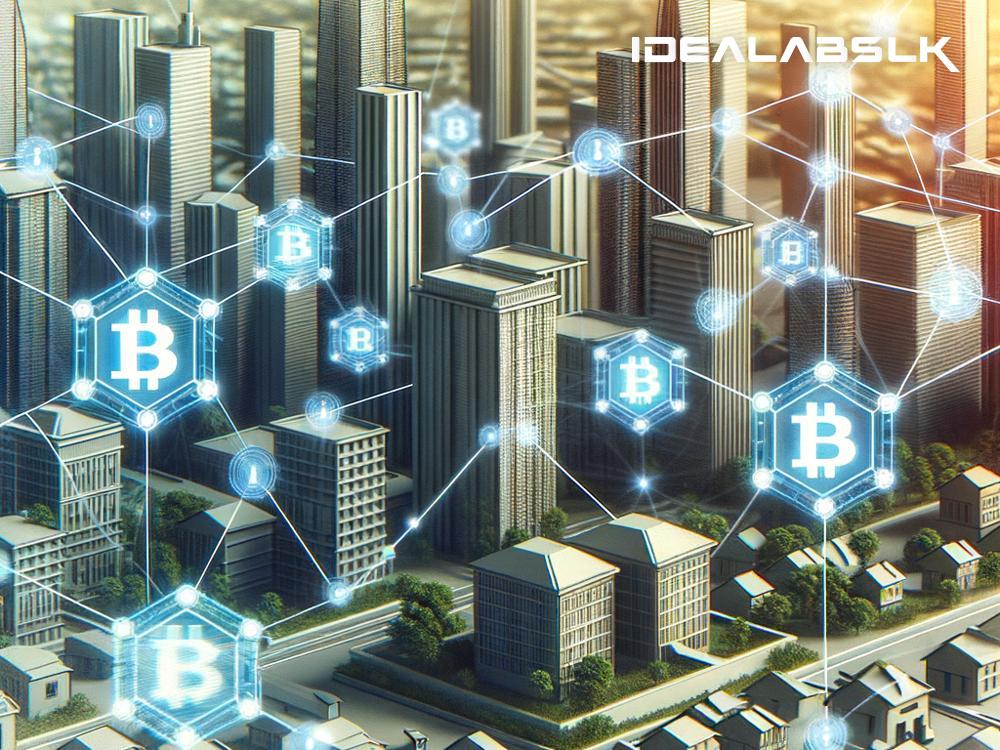Unlocking the Future of Property Investment: The Role of Blockchain
Imagine being able to invest in real estate with the tap of a button, owning a piece of a building in another continent, and making all this happen without piles of paperwork or intermediaries. Sounds futuristic, right? Thanks to blockchain technology, this future is closer than you might think. Let’s break down how Blockchain-Enabled Real Estate Investment Vehicles are transforming the traditional landscapes of property ownership and investment.
What Is Blockchain, Anyway?
Before we dive into its implications for real estate, let's simplify what blockchain is. Imagine a digital ledger that’s accessible to numerous people across the globe simultaneously. This ledger records transactions in a secure, transparent, and immutable manner - which means once something is recorded, it can’t be altered or tampered with. This foundational technology behind cryptocurrencies like Bitcoin is now making waves in sectors far beyond just finance, real estate being a prime example.
Enter Blockchain-Enabled Real Estate Investment
Traditionally, investing in real estate required significant capital, making it a playground for the wealthy. Moreover, the process was often mired in paperwork, middlemen, and a lack of transparency, deterring small investors from coming on board. Blockchain technology is here to democratize this process – making real estate investment accessible, efficient, and secure for a wider audience.
Here’s how it’s changing the game:
-
Fractional Ownership: Imagine if you could own a $10 share of a commercial skyscraper or a luxury resort. Blockchain allows the division of property assets into smaller, more affordable shares, enabling investors to buy a fraction of a property. This approach opens the door for smaller investors to diversify their investment portfolios across various properties or regions without needing the capital traditionally required to enter the real estate market.
-
Transparency and Security: Every transaction on a blockchain is recorded in a way that's transparent and immutable. In real estate, this means clearer property histories, straightforward ownership records, and a significant reduction in fraud. Investors can see the movement of assets and cash flow in real-time, knowing their investments are secured by blockchain’s robust framework.
-
Speed and Efficiency: By eliminating the middlemen and streamlining the process, blockchain significantly reduces the paperwork, time, and costs associated with real estate transactions. Smart contracts — self-executing contracts with the terms of the agreement directly written into code — pave the way for automatic payments and agreements without the need for manual processing or verification.
-
Global Access: Blockchain is not constrained by geographical boundaries. An investor from Japan can easily invest in a property in Canada without stepping outside their home. This global market accessibility not only benefits investors but also property owners who now have access to a broader pool of potential investors.
Real-World Applications and Potential
While the concept might still sound progressive, several real-world applications of Blockchain-Enabled Real Estate Investment Vehicles are already in play. Companies and platforms are emerging that offer blockchain-based real estate investments, enabling investors to buy and sell fractions of properties with ease. In addition, governments and municipalities are exploring blockchain for land registry and to track the ownership and transaction history of properties to reduce fraud and improve efficiency.
The potential here extends further into the future, where entire real estate ecosystems could be built on blockchain, encompassing not just investment, but also property management, rentals, and sales — all in a unified, transparent, and secure system.
Navigating Challenges
With all its benefits, blockchain in real estate is not without its hurdles. Regulatory, legal, and technical challenges exist. The legal framework around fractional ownership through blockchain is still evolving, and there’s a need for clearer regulations to protect investors. Additionally, the technology's nascent nature means there's a learning curve and infrastructure update required for widespread adoption.
The Road Ahead
As we venture forward, the marriage between blockchain and real estate promises to reshape how we perceive property investment. It’s a journey from exclusivity to inclusivity, from opacity to transparency. For investors, it means more opportunities and fewer barriers. For the real estate industry, it signifies a new era of efficiency and innovation.
This convergence of technology and brick-and-mortar isn’t just a passing trend but a revolution in the making. Blockchain-Enabled Real Estate Investment Vehicles are not merely unlocking new potentials in investment; they are paving the way towards a more democratized, secure, and accessible global real estate market. In this brave new world, the dream of owning a slice of the real estate pie, no matter how small, is a reality within grasp for many.

